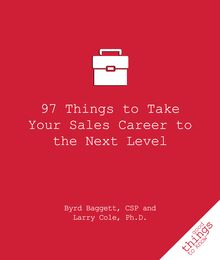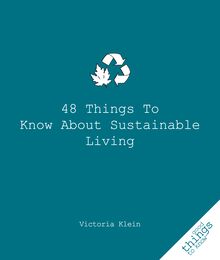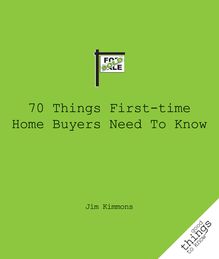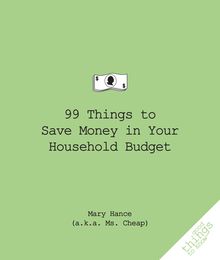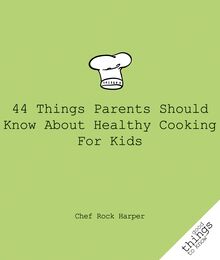-
 Univers
Univers
-
 Ebooks
Ebooks
-
 Livres audio
Livres audio
-
 Presse
Presse
-
 Podcasts
Podcasts
-
 BD
BD
-
 Documents
Documents
-
- Cours
- Révisions
- Ressources pédagogiques
- Sciences de l’éducation
- Manuels scolaires
- Langues
- Travaux de classe
- Annales de BEP
- Etudes supérieures
- Maternelle et primaire
- Fiches de lecture
- Orientation scolaire
- Méthodologie
- Corrigés de devoir
- Annales d’examens et concours
- Annales du bac
- Annales du brevet
- Rapports de stage
La lecture à portée de main
Vous pourrez modifier la taille du texte de cet ouvrage
Découvre YouScribe en t'inscrivant gratuitement
Je m'inscrisDécouvre YouScribe en t'inscrivant gratuitement
Je m'inscrisEn savoir plus
Vous pourrez modifier la taille du texte de cet ouvrage
En savoir plus

Description
Are you looking into buying your first home but don’t know where to start? 70 Things First-time Home Buyers Need To Know breaks down all the complicated real estate legalese and provides you with the straightforward knowledge you need to decide whether you should buy, how to locate the right home for you, and how to navigate the process from negotiation through closing, including:
- Comparing single-family and condominium ownership and benefits
- Selecting the right real estate professional for your needs
- Using the Web to search for your home
- Negotiating price and repairs
- Understanding surveys, title insurance, appraisals, and all aspects of the closing process
Sujets
Informations
| Publié par | Turner Publishing Company |
| Date de parution | 28 septembre 2010 |
| Nombre de lectures | 0 |
| EAN13 | 9781596529618 |
| Langue | English |
Informations légales : prix de location à la page 0,0500€. Cette information est donnée uniquement à titre indicatif conformément à la législation en vigueur.
Extrait
Praise for 70 Things First-time Home Buyers Need To Know
Through 70 Things First-time Home Buyers Need to Know, Jim leverages his years of writing to explain the new methodology for buying real estate in a new age where most real estate information and data can be found online, but often hard to interpret. If you’re a consumer looking to purchase your first home, this book will give you a solid foundation on the newest ways to save money and time in your home search and ultimate transaction.
—Patrick Kitano, Managing Principal, Domus Consulting Group
To the adventurous of us over fifty who undertake new careers, successful or not.
To the four sweet ladies in my new family, who put up with an old dog who resists learning new tricks.
Turner Publishing Company 200 4th Avenue North • Suite 950 Nashville, Tennessee 37219 (615) 255-2665
www.turnerpublishing.com
70 Things First-time Home Buyers Need To Know
Copyright © 2010 Turner Publishing Company
All rights reserved.
This book or any part thereof may not be reproduced or transmitted in any form or by any means, electronic or mechanical, including photocopying, recording, or by any information storage and retrieval system, without permission in writing from the publisher.
Library of Congress Cataloging-in-Publication Data
Printed in China
10 11 12 13 14 15 16 17—0 9 8 7 6 5 4 3 2 1
9781596529618
I want a house that has got over all its troubles; I don’t want to spend the rest of my life bringing up a young and inexperienced house.
— Jerome K. Jerome, British author and humorist
Table of Contents
Praise for 70 Things First-time Home Buyers Need To Know Dedication Title Page Copyright Page Epigraph Introduction 1 - Should you buy or rent? 2 - Your home is not a retirement investment 3 - Be selling when you’re buying 4 - Kitchens can be remodeled—neighborhoods are harder 5 - Condo or single-family home? 6 - The cheapest home in the neighborhood could be the best one to buy 7 - Energy efficiency: ask for it 8 - Before the search, get prequalified 9 - Mortgage basics 10 - Selecting a mortgage broker or lender 11 - Mortgage fees are negotiable 12 - Escrow and how it works 13 - Know what’s going to happen with real estate taxes 14 - The best available mortgage for most of us 15 - If you’re rural, the USDA could be your best friend 16 - Homepath—your path to a foreclosure home purchase 17 - The truth about short sales 18 - Getting home-listing information on the Web 19 - Getting full home information delivered as it happens 20 - How Web listings can be incorrect—or not for sale at all 21 - Avoiding being referred until you’re ready 22 - Search a little higher asking price—you will be offering less 23 - Agents, brokers, associate and managing brokers? 24 - How real estate agents get paid 25 - Who’s your perfect real estate professional? 26 - Agent referrals from friends or relatives 27 - Why you usually don’t want to be referred agent-to-agent 28 - Understanding agency and representation 29 - “Buyers are liars,” but it’s changing 30 - A buyer’s agent should always give you a CMA 31 - Buyer agency agreements: should you sign one? 32 - If you have a buyer agent, make sure to tell other agents 33 - Sit on the furniture in staged homes 34 - When you’re getting close, go see it again . . . and again 35 - Is a bid war for you? 36 - The C.L.U.E. to a home’s history 37 - What your agent must disclose to you 38 - The property disclosure 39 - L ead base paint in homes built before 1978 40 - Getting environmental information 41 - Listen to your agent, but the offer price is your decision 42 - Anything can be negotiated 43 - Negotiation with throw-away contingencies 44 - How much earnest money? 45 - Counter offers: they aren’t just about price 46 - If you’re tough on price, be prepared for trade-offs later 47 - Don’t bring the moving van too early 48 - Dates and deadlines do matter 49 - The interest rate lock 50 - With all of these professionals involved, mistakes don’t happen . . . right? 51 - Choosing a home inspector 52 - The inspector’s shadow—that’s you 53 - There may be multiple inspectors 54 - Homeowner’s insurance 55 - Title insurance and the title binder or title commitment 56 - Easements 57 - Restrictions, covenants, and zoning 58 - Special condominium considerations 59 - What’s a survey and what’s not 60 - What if the home you’re buying encroaches on another property? 61 - Repair negotiations after the inspection 62 - The appraisal 63 - Even if you did get a great deal, don’t expect the appraisal to prove it 64 - Changes usually require paperwork 65 - Mediation before litigation 66 - What if the seller balks for no good reason? 67 - The walk-through before closing 68 - Deed and legal description 69 - Closing doesn’t mean possession 70 - The closing Conclusion
Introduction
This is a book about decisions. You’ve made one by picking it up and checking out this introduction. You may have already made the decision to buy it. But the most important thing to me is for this book to remove as much as possible any chance of you making home-purchase decisions in a vacuum. Knowledge and information can fill that vacuum and empower you to make informed decisions.
I looked through several recent real estate purchase transactions in which I represented the buyers. In going through the pile of contracts, inspections, offers, counter offers, title insurance documents, and more, I found that I could easily count more than 100 decision points for my buyers in every one of them. That’s a lot of decisions, especially if it’s your first time to buy a home.
Whether you’re a first-time home buyer or you’ve done it before but want to know more about the process, this is my opportunity to share my knowledge and experience as a realtor with you. And it’s a thrilling opportunity for me on many levels.
The single most exciting thing for me is the chance to share information you may not get elsewhere but should know. I’m proud to be a real estate professional, and I’m lucky to be able to help people realize their dream of home ownership. The vast majority of real estate agents and mortgage professionals have the same attitude. But it’s a business in which there are a lot of no-payday situations if the buyer doesn’t make it through closing.
If you’re given this book by a real estate or mortgage professional, it indicates that he or she isn’t afraid to tell you what you need to know. It shows a true desire to empower you with knowledge to make great decisions, not have them made for you.
This book also gives you complete information that could allow you to take a path that may not be the easiest for the real estate agent. It may make his or her job harder. It could mean a deal falling through because you took a hard negotiation line. Or, because of something you learn here, you may decide to cease negotiations due to disclosures or issues you discover in documents.
If you bought the book, then you’re to be congratulated for your planning and the thought you’re putting into this most major of purchases in your life. I won’t let you down. When you’ve read this book, you’ll have a thorough knowledge of the process, from the home search through the closing and beyond.
1
Should you buy or rent?
S ince you’re reading this book, your plan includes buying a home soon. But maybe you’re second-guessing your decision, or reading in the media that it may be better now to rent than to buy.
The problem with articles about rent-versus-buy is that most of the discussion is about the “investment” in a home, and whether you’ll experience appreciation or depreciation in value. And that’s a valid concern. But we invest more than just money in our home. Where we live, how we live, and how much we enjoy our lives can be influenced greatly by our home environment. Are you unhappy with limitations on what you can do in a rental home? Would you love to paint one room orange but can’t?
How about the proximity of noisy neighbors in an apartment or rental condo? If you don’t have any private outdoor space, how important is that to you? Are you paying rent that could be a house note and settling for older appliances, nosy landlords, and the problems that accompany them? There are just too many lifestyle preferences that should enter into your decision to buy or to rent.
Even if you’re not in an apartment but a single-family home, have you been forced to move because the owner decided to sell? It happened twice in a row to someone I know. He actually liked the homes he was renting and did not like moving around. The problem was that he’d just get settled in, even signing eighteen-month leases, only to have two homes in a row put on the market before the lease was up. He bought a home so he could be secure in his location. It’s not all about just investment. In fact, read the next item to get a clear picture of your home’s value as a place to enjoy life, and as an investment. It’s still the American dream to own your own home.
2
Your home is not a retirement investment
N o matter how many advertisements you see on TV or ads you read in newspapers or magazines that tell you it is, your home should not be counted on as a retirement investment. For every homeowner who will tell you they increased their net worth during the boom years of home price increases, there are five more who ended up with a home worth less than they paid for it, or even worse, a foreclosure. A large number of those were purchased at the top of a frenzied market, not using the tools and knowledge you’ll get in this book.
Your home should be all about where and how you live, enjoying life, and locating where you and your family can enjoy the best and most economical lifestyle. Then, take any excess money and invest it in other ways to fund your retirement. One of those other investment choices could be real estate, but every property you buy for
-
 Univers
Univers
-
 Ebooks
Ebooks
-
 Livres audio
Livres audio
-
 Presse
Presse
-
 Podcasts
Podcasts
-
 BD
BD
-
 Documents
Documents
-
Jeunesse
-
Littérature
-
Ressources professionnelles
-
Santé et bien-être
-
Savoirs
-
Education
-
Loisirs et hobbies
-
Art, musique et cinéma
-
Actualité et débat de société
-
Jeunesse
-
Littérature
-
Ressources professionnelles
-
Santé et bien-être
-
Savoirs
-
Education
-
Loisirs et hobbies
-
Art, musique et cinéma
-
Actualité et débat de société
-
Actualités
-
Lifestyle
-
Presse jeunesse
-
Presse professionnelle
-
Pratique
-
Presse sportive
-
Presse internationale
-
Culture & Médias
-
Action et Aventures
-
Science-fiction et Fantasy
-
Société
-
Jeunesse
-
Littérature
-
Ressources professionnelles
-
Santé et bien-être
-
Savoirs
-
Education
-
Loisirs et hobbies
-
Art, musique et cinéma
-
Actualité et débat de société
- Cours
- Révisions
- Ressources pédagogiques
- Sciences de l’éducation
- Manuels scolaires
- Langues
- Travaux de classe
- Annales de BEP
- Etudes supérieures
- Maternelle et primaire
- Fiches de lecture
- Orientation scolaire
- Méthodologie
- Corrigés de devoir
- Annales d’examens et concours
- Annales du bac
- Annales du brevet
- Rapports de stage
